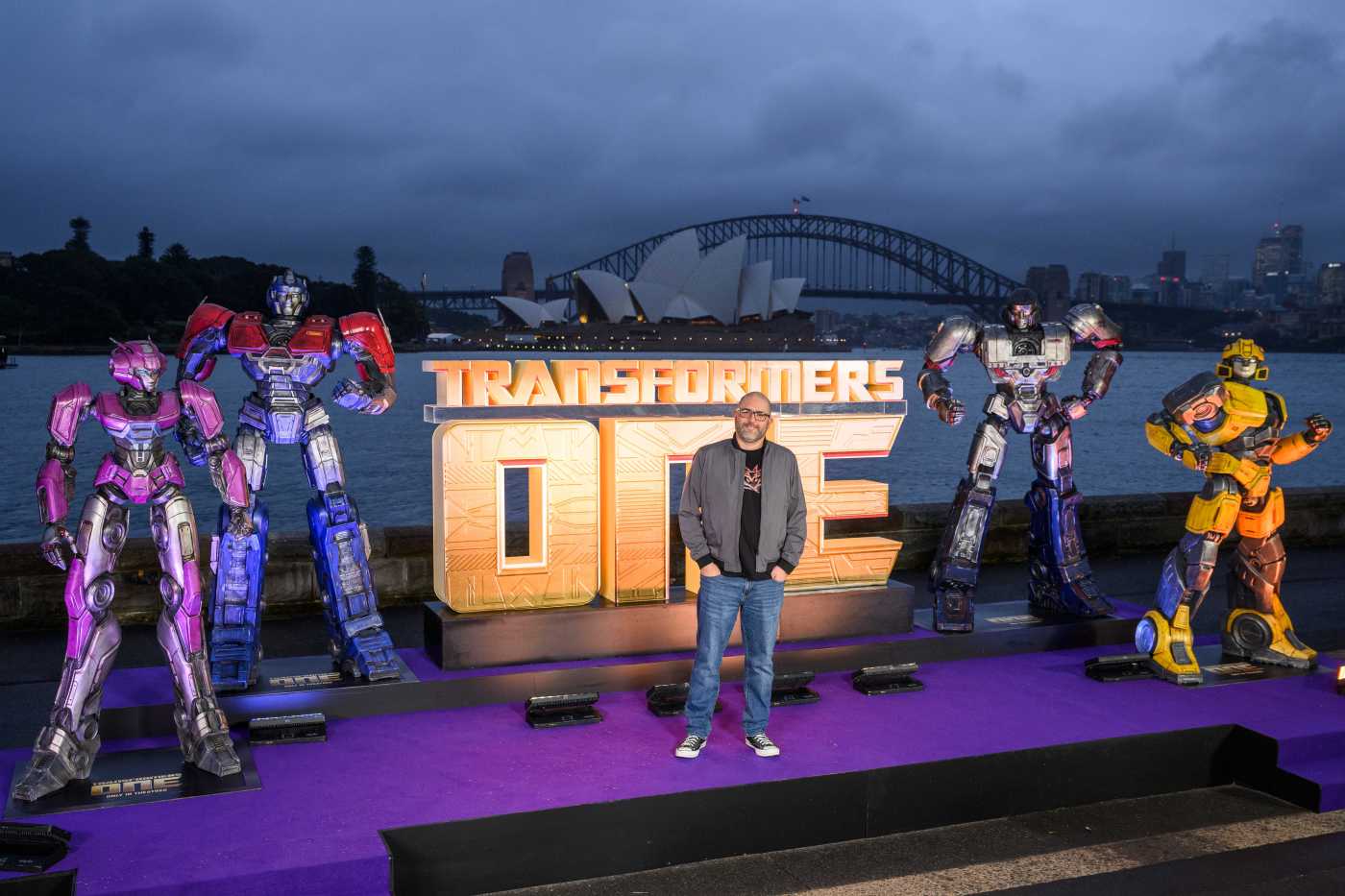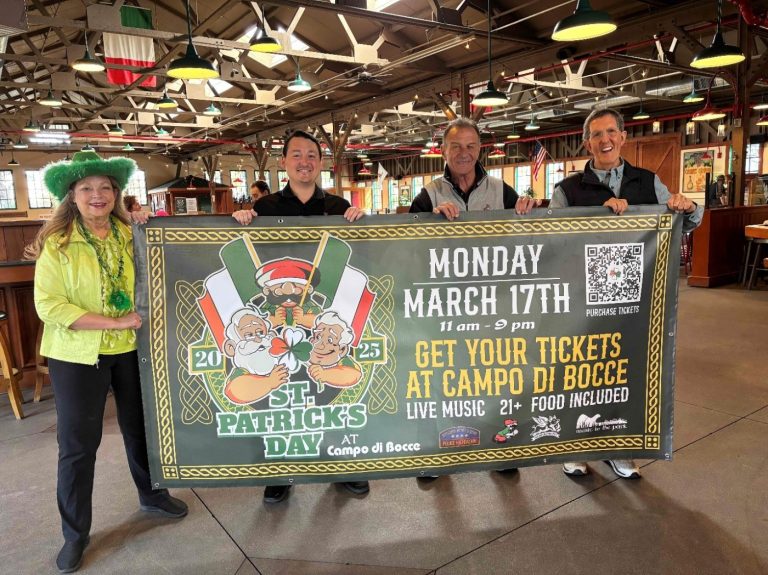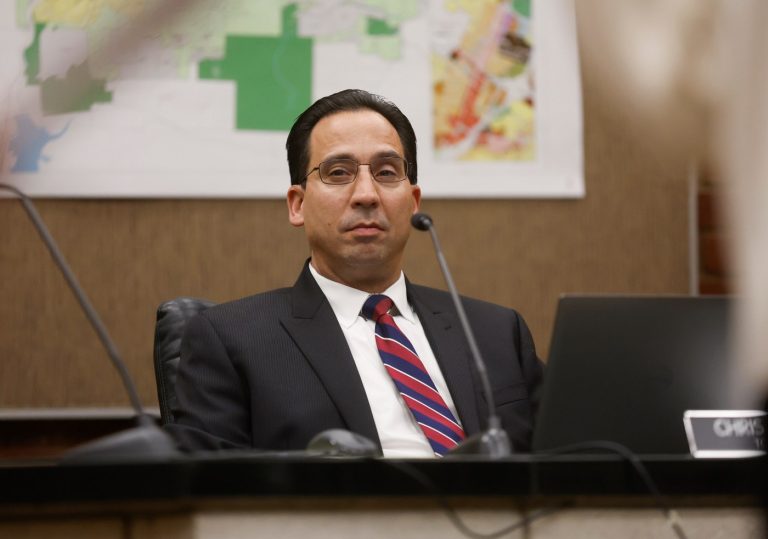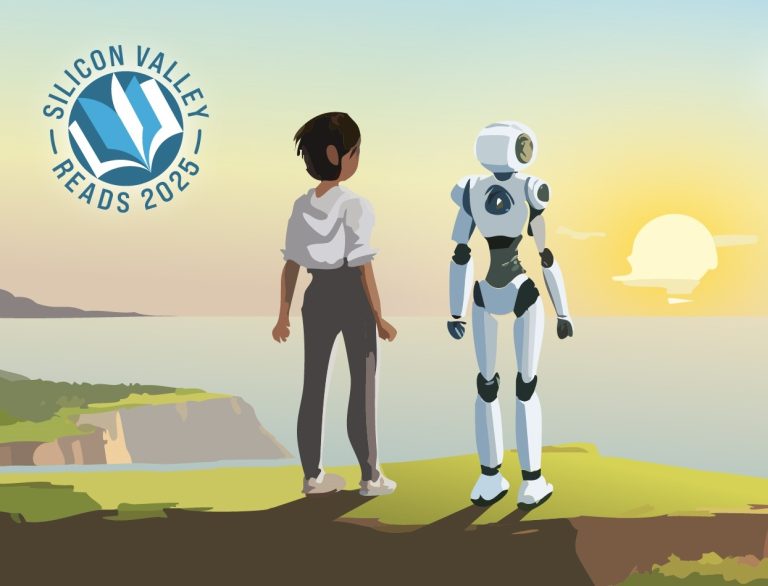Berkeley-born director Josh Cooley knew from the get-go that “Transformers One” needed to achieve two Megatron-sized goals in order to succeed: To satisfy legions of devoted fans well-versed in the multi-layered Transformers universe, yet able to appeal to newcomers who might not know the the difference between Optimus Prime and Amazon Prime.
That challenge, coupled with a friends-to-enemy origin storyline that hadn’t been unexplored yet drew the Oscar winner (“Toy Story 4”) to direct this eighth “Transformers” installment inspired by the Hasbro toys and TV show.
“We’re starting in a place where I always think I want my grandma to come in and not say ‘Who’s going where?,’” Cooley said during a stop in San Francisco to promote the film. “(Instead) she would go: ‘Oh, I totally get it.’”
“So ‘Transformers One’ is a way into learning about this world and these characters,” he added. “It reminds me of the first ‘Star Wars’ where you just get put into this other world, but are learning about it as you go along. That was always a goal.”
The “Transformers” franchise has already flexed its might and its durability at the box office, amassing a staggering $5 billion. “Transformers One” marks the series’ first animated foray in more than four decades and it could fuel even more animated movies. The PG-rated sci-fi adventure opens Friday in area theaters.
The story centers on a facet of Transformers mythology not trod in the live-action universe Michael Bay created in the franchise’s first five films: What caused two cogless mining robots on the planet Cybertron — the gregarious Orion Pax (aka Optimus Prime) and the more uptight D-16 (aka Megatron) — to go from friends to archenemies. They are buddy-buddy at the start of “Transformers One” and venture on a quest with Elita-1 and B-127 (aka Bumblebee, the star of the sixth film) to try to get their mitts on the long-missing Matrix of Leadership, a move that enables them to get Energon, the energy source for Transformers, flowing again.
Upon reading the screenplay, the 45-year-old Cooley immediately picked up on similarities the story shares with classic, biblical-like skirmishes. After talking to voice actor Brian Tyree Henry about playing a character (Orion Pax) who changes dramatically and then pondering the potent themes the origin story raises about feuds and power struggles, he stopped seeing “Transformers” as an animated feature and more in line with live-action epics powered around legendary conflicts, a la Cain and Abel, Spartacus and Ben-Hur.
In his words: “Movies where it’s these huge epic tales, but it’s one very simple relationship at the core of it. That’s what I want to make, but we’re doing it on another planet, a billion years before Earth even exists … . It’s crazy, but that was the goal: How can we just make this epic thing that feels very personal?”
Instrumental in making that happen was pinpointing the appropriate vocal cast.
“I mean casting is 90 percent,” Cooley said. “It’s important and I can’t believe the cast we got. It’s unreal.”
Just consider: Chris Hemsworth (as Orion Pax/Optimus Prime); Brian Tyree Henry (D-16/Megatron); Keegan-Michael Key (B-127/Bumblebee); Scarlett Johansson( Elita-1); Steve Buscemi (Starscream); Laurence Fishburne (Alpha Trion) and Jon Hamm (Sentinel Prime).
Certainly one of the most critical and worrisome hiring choices came in selecting the right actor to voice Orion Pax/Optimus Prime, an iconic role that had previously been done with vocal depth and acuity by Peter Cullen. He’s voiced the character since “Transformers” first debuted on TV in 1984.
“One of those things that kept me up from Day 1 was how are we going to cast Orin Pax when my Optimus Prime is Peter Cullen,” Cooley recalls.
Enter Thor, er, Hemsworth.
“When I heard Chris and I heard him doing an American accent, I was like, ‘Oh, he’s got the depth, he’s got the power in it but also the softness.”
Cooley said he wanted to honor and respect what Cullen brought to that role and “not just go off on some weird tangent. I talked with Chris about that as well and when I heard his voice, I said ‘OK, he has the charm I was looking for.’ His voice comes across as loose and natural, and it’s perfect. Our first recording session he started off with that and I was like ‘Oh this is really cool’ And then by the end of the script, I even saw in his performance, he was standing up a little straighter and just had a little bit more power and started to do the cadence of Optimus Prime. He wasn’t doing it as an impersonation but it was that strength and that timing of it. And I literally got goosebumps.”
In advance screenings and during the making of the film, the story about the rivalry and disintegration of a friendship struck an emotional chord.
“I’ve already had people (during test screenings) come up to me and say ‘Oh, this reminds me of the breakup I had with my friend,” Cooley said, adding that the story touched Tyree Henry so much that to prepare for the role he reached back into his own childhood.
From left, D-16 (voiced by Brian Tyree Henry), B-127 (Keegan-Michael Key) Elita-1 (Scarlett Johansson) and Orion Pax (Chris Hemsworth) appear in a scene from “Transformers One,” directed by Josh Cooley. (Paramount Pictures).
Cooley’s love for animation goes back to when he was a child. The son of artist and musician parents, Cooley tapped into his creativity at an early age when he became entranced by ‘80s Saturday morning cartoons featuring the derring-do of the Transformers, G.I. Joe, He-Man and others. He too began to draw.
After he learned he could actually make a living from being involved with animation, he declared his professional aspirations to his encouraging parents — who met at middle school and attended Berkeley High School.
“They were like ‘yeah, of course,’” he recalls. “‘What else are you going to do’?”
Looking back on why he fell in love with animation, he reflects upon the instantaneous reaction he received upon showing his creative output to his parents. “I do remember doing drawings of, like, kind of jokes or gags that I came up with and I’d show my parents and I would get a response from them like a big laugh or hearing them say ‘this is great’ or they would put it up on the refrigerator. I think that’s kind of where it started. I realized you can do an illustration, a drawing and then not be near it and still get a response.”
During his 18-year career at Emeryville-based Pixar, where he started as the first intern in the story department, Cooley went on to write the Oscar-nominated screenplay with Pete Docter and Meg LeFauve for 2015’s Oscar-winning “Inside Out.” He then won the 2020 Oscar for best animated feature for directing “Toy Story 4.” He has also voiced roles and worked on some of the studio’s best features, including “Ratatouille,” “The Incredibles” and “Up.” He also served on the studio’s creative team for projects that included “Coco,” “The Incredibles” and “Soul.”
The soaring summer successes of the recent “Inside Out 2” and “Despicable 4” indicate animated films are proving resilient and strong, and dominating not only at the box office but also connecting with audiences.
He credits those successes partially to the exacting nature and the collaborative attention to detail in animated projects, where one single shot requires both animators and the director to question “why is this shot important?”
In the case of “Inside Out 2,” Cooley sees its popularity springing from how it speaks to “a subject that everybody’s experienced.” “Transformers One,” which spins around a volatile relationship and shady power strongholds, arrives during a particularly tense time in this nation and could resonate as well.
“Every film I’ve worked on, you can always point at something that’s actually happening in the world and say this is very similar,” he said. “I think it’s because we’re storytellers and we can’t help but be affected by what’s going on around us.”
His intentions, though, are never to make audiences feel like they’re being preached to.
“But if they can come away feeling more positive about life,” he noted, “that’s a bonus.”












